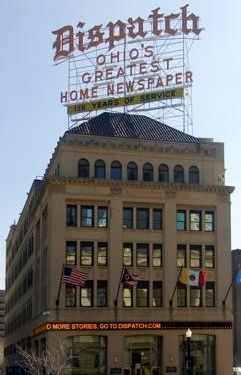Like clockwork whenever an economic downturn hits a manufacturer, the “let’s blame the Unions” criers come out of the wood work. Basically the lie is that due to the massive wages paid to union workers, a company can’t compete with makers in other countries where labor is close to slave wage-wise. Never do you hear that it is the fault of management making poor decisions.
One lie being told is that a UAW member is making $70 an hour.
Sen. Jon Kyl: “For years they’ve been sick. They have a bad business model. They have contracts negotiated with the United Auto Workers that impose huge costs.The average hourly cost per worker in this country is about $28.48. For these auto makers, it’s $73. And for the Japanese auto companies working here in the United States, it’s $48.”
Transcript: Sens. Dorgan, Kyl on ‘FOX News Sunday’
Well I think most union members would be thrilled with $70 an hour but in fact they have been giving concessions back to the companies for many years including a recent GM contract that had the Union take over providing health insurance for its members.
At the core of the new deal is the transfer of retiree health-care payments from GM to the UAW. GM will pay an estimated $35 billion into a trust designed to appreciate in value and pay health-care benefits for retired workers for at least the next 80 years, the union estimated. In return, GM is able to unload a $51 billion burden in retiree health-care obligations from its books, enabling the troubled company to borrow money more easily and move more nimbly against competitors. GM’s health-care liability is more than twice the company’s $21 billion market capitalization.
In exchange for giving up annual raises over the course of the contract and allowing GM to pay new workers a lower wage, the union got job-security assurances. The deal must now be approved by union leaders at a meeting Friday, then by union members. Analysts expect the deal to be ratified.
GM, Union Agree on Contract to End Strike (09/27/2007)
The credit crunch and other economic issues have hit all auto makers not just the US Big 3.
And for the first time, Mercedes-Benz, Toyota, and Nissan have each asked to lease space from the port for these orphan vehicles. They are turning dozens of acres of the nation’s second-largest container port into a parking lot, creating a vivid picture of a paralyzed auto business and an economy in peril.
“This is one way to look at the economy,” Art Wong, a spokesman for the port, said of the cars. “And it scares you to death.”
A Sea of Unwanted Imports
And some of the same people balking at providing a loan to the Big 3 didn’t have any trouble giving millions of dollars to foreign car makers to locate in the US
If it’s no surprise that Michigan lawmakers are behind the pitch for a $25 billion lifeline for Detroit automakers, then it might be just as predictable that Southerners would be leading the charge against it.
Southern politicians have spent years luring foreign automakers to build cars in their states, with huge success. South Carolina has BMW. Mississippi recently landed a major plant for Toyota Motor Corp. Alabama boasts plants run by Mercedes-Benz, Hyundai Motor Co. and Honda Motor Co.
After luring foreign automakers, Southerners have big incentive to oppose auto Detroit bailout
Then we have the excessive wages paid to the people who really don’t seem to have any ideas on what to do – the CEOs. For example in 2007, General Motors CEO Rick Waggoner made close to $20 million in total compensation.
But of course it is all the Unions fault – right?

